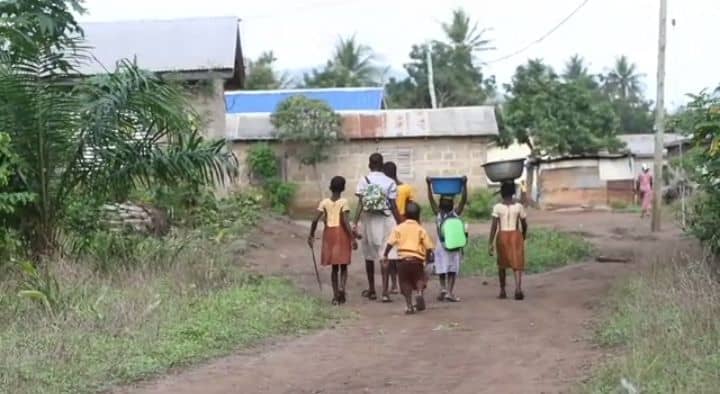Education is the foundation for personal and societal development, and ensuring access to quality education for all is a goal that nations worldwide strive to achieve.
In many countries, however, rural communities often face unique challenges that hinder children's access to education and increase the incidence of school dropouts and child truancy.
Rural communities in Ghana have long faced a myriad of obstacles that prevent children from accessing and staying in school.
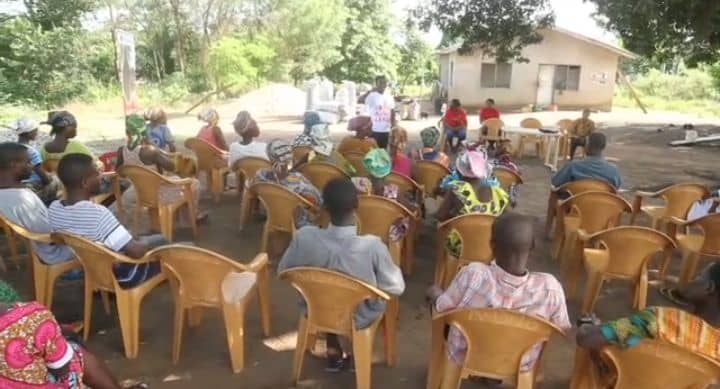
Factors such as limited access to schools, insufficient educational infrastructure, poverty, and cultural norms that prioritise child labour or early marriages have contributed to high rates of school dropouts and child truancy.
As a result, children in rural areas often miss out on the opportunity for quality education, perpetuating a cycle of poverty and limited opportunities.
In response to these challenges, Action Aid Ghana, a non-governmental organisation committed to promoting social justice and eliminating poverty, initiated a project aimed at reducing school dropouts and child truancy in rural communities.
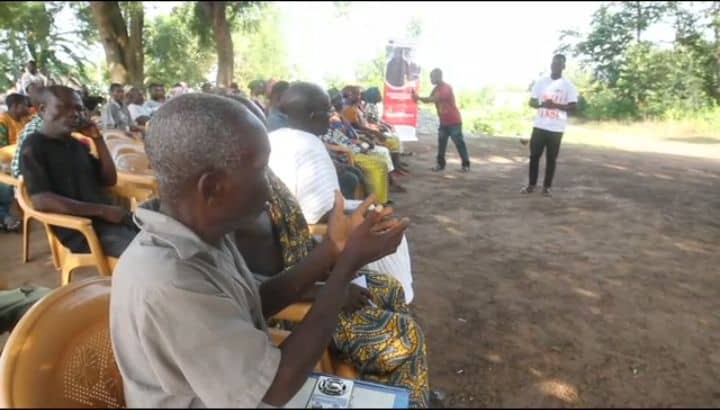
This project is multifaceted, focusing on several key areas to create a holistic solution.
The community project lead of COMBACT, Thelma Asabre said one of the primary objectives of the project is to increase access to quality education by building and renovating schools in remote areas.
According to her, by providing children with a safe and conducive learning environment, the project is removing a significant barrier to education.
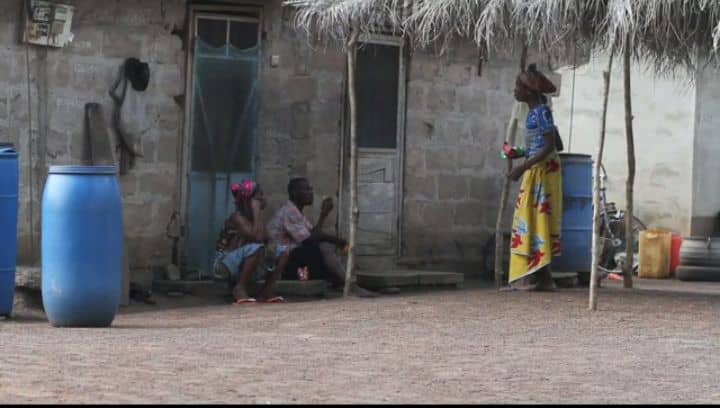
Thelma Asabre added that the project places a strong emphasis on gender equality by encouraging the enrollment of girls in school and addressing cultural norms that might limit their educational opportunities.
This approach she said is vital in creating a more inclusive and equitable education system.
On enhancing community Involvement, she said Action Aid Ghana recognizes the importance of community involvement in sustaining educational initiatives, adding that the project encourages communities to take ownership of their schools, participate in decision-making, and contribute to the development of their local education systems.
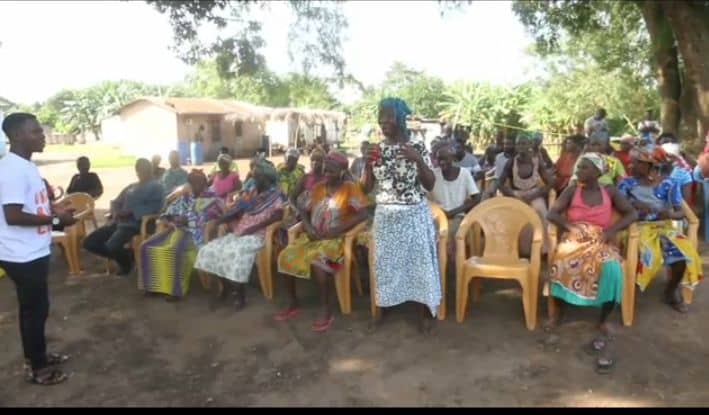
She stated that poverty is a major factor contributing to school dropouts and child truancy and that Action Aid Ghana's project supports families through income-generating activities and vocational training, ultimately enabling parents to afford their children's education.
"The introduction of Action Aid Ghana's project has resulted in positive outcomes in rural communities. Notably, there has been a significant reduction in school dropouts and child truancy cases. Children who once struggled to attend school are now enjoying improved access and a higher quality of education," Thelma Asabre said.
Residents in Adaklu Adzakpo and other selected communities said the project has strengthened the relationship between schools and the communities they serve.
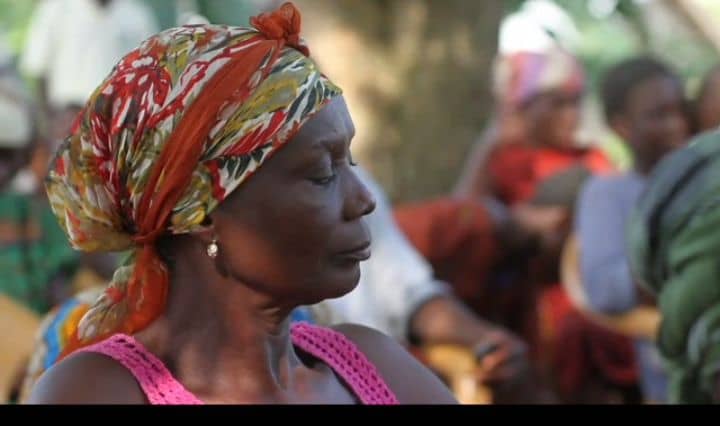
They admitted that the parents and community members are actively engaged in the education of their children, working together to ensure that students remain in school and complete their studies.
"Action Aid Ghana's approach to addressing gender disparities has led to a substantial increase in girls' enrollment in schools. Girls are now receiving the same opportunities as boys, allowing them to pursue their dreams and aspirations," a resident said.
ActionAid Ghana in partnership with FIDA Ghana is implementing the Transformative Action for Gender Equality Project (TAGE) in 64 communities across eight districts in Ghana intending to improve gender equality and achieve a long-term reduction of prevalence of violence against women and girls across generations in Ghana.
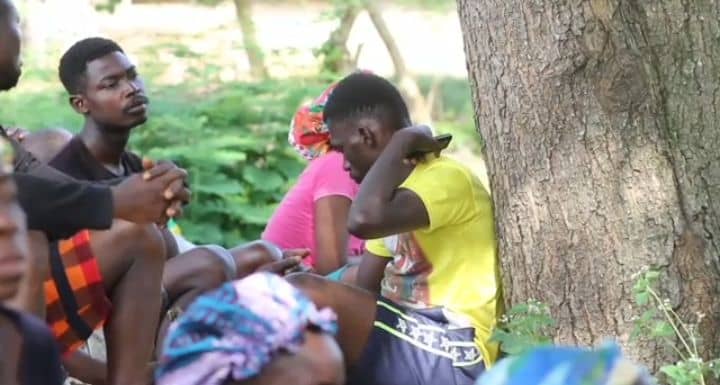
The project specifically seeks to prevent and reduce violence experienced by underserved groups of women and girls in the target districts through enhanced knowledge, positive societal attitudes, and responsiveness of state actors and the media.
Latest Stories
-
Joy FM Prayer Summit for Peace ends in electrifying worship and prayer
1 hour -
The Conscience of Leadership: A call to President Akufo-Addo on Ghana’s environmental devastation
2 hours -
Ghanaian youth unaware of their right to hold politicians accountable – Youth Bridge Foundation
3 hours -
Judge delays Trump sentencing for a third time
3 hours -
2024 WAFCON: Ghana drawn against defending champions South Africa in Group C
3 hours -
Photos from DW-JoyNews street debate on ‘galamsey’
4 hours -
Mimmy Yeboah: Blending heritage with global sophistication, confidence redefined through couture
4 hours -
100 Most Influential People Awards 2024: Brain Hill International School’s Director Mary Anane Awuku honoured
5 hours -
Akufo-Addo commissions 97-km Tema-Mpakadan railway line
5 hours -
Majority requests recall of Parliament
5 hours -
Kanzlsperger and Professor Quartey support WAFA with medical Donation
5 hours -
Gideon Boako donates 10 industrial sewing machines to Yamfo Technical Institute
5 hours -
‘Golden Boy’ Abdul Karim Razak honored at WAFU-B general assembly
6 hours -
Buipewura Jinapor secures Vice Presidential position in National House of Chiefs with record votes
6 hours -
2024 election: I want results to come out like ‘milk and honey’ – Toobu
6 hours

